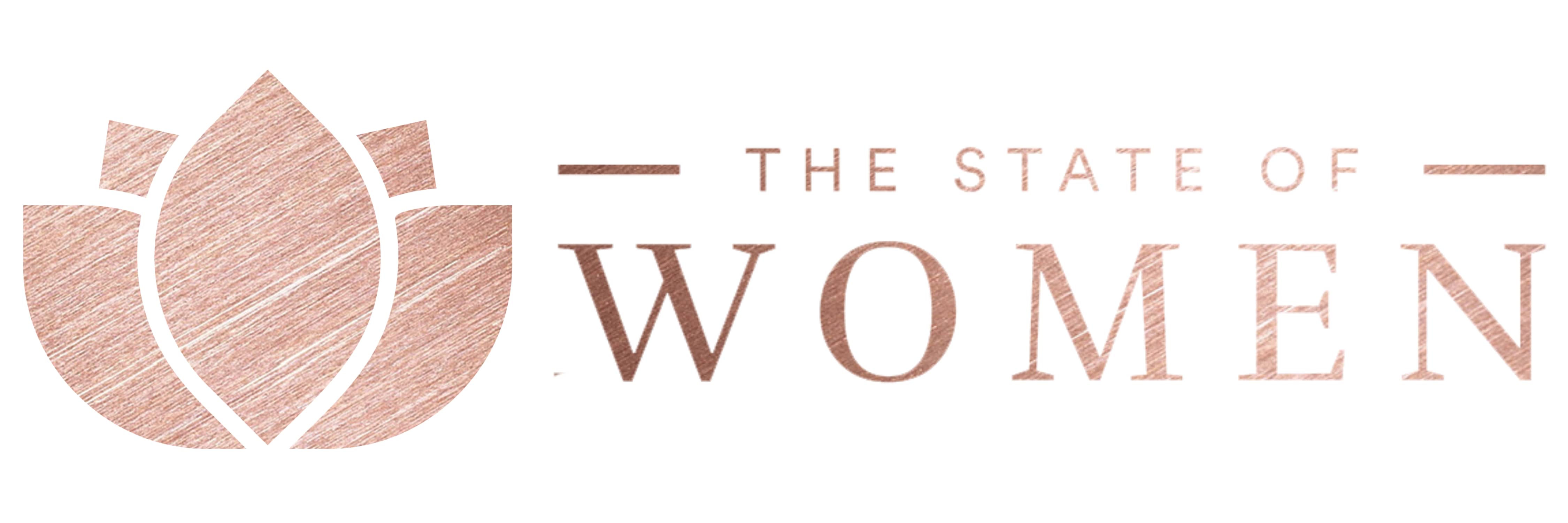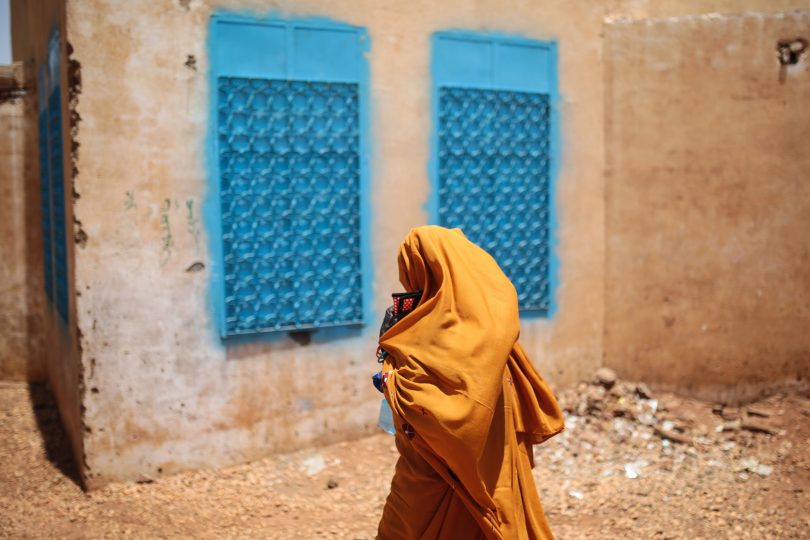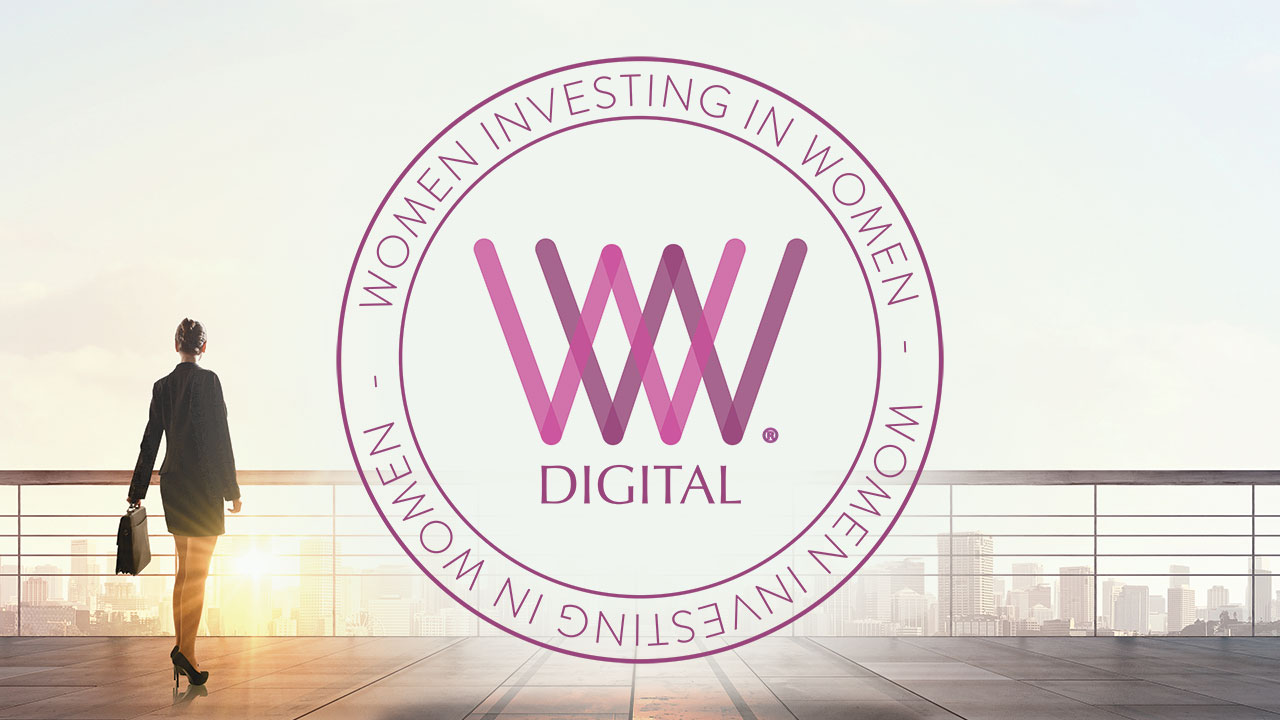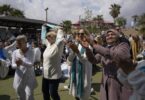This article originally appeared on the Women & Girls Hub of News Deeply, and you can find the original here. For important news about issues that affect women and girls in the developing world, you can sign up to the Women & Girls Hub email list.
By Hannah McNeish
Based in Khartoum, the Superwoman Network brings together five civil society organizations to provide support, legal aid and training to help women who were once the victims of domestic violence and FGM.
KHARTOUM, Sudan – Before Jamila joined the Superwoman Network in Sudan’s capital Khartoum, she felt powerless and alone in her struggle to cope with years of violence from the two closest men in her life.
“Anything he saw in front of him, he would use to beat me,” she says of the husband she left eight years ago.
But after escaping her husband, Jamila and her children suffered at the hands of her father who, unemployed due to sickness and supporting two new wives and more children, resented having to support them, too.
“When I argued with his children whilst ironing, he took the iron and burnt me with it,” says Jamila, pointing out the nicks and dark patches of scar tissue on her neck, arms and chest. “He has also burnt my sons. The eldest has marks all over his body from where [my father] would heat up a screwdriver and burn him with it.”
To help women like Jamila – women with nowhere left to turn – the Superwoman Network brings together five civil society organizations. The group offers support to vulnerable women in contact with the law, such as current and released prisoners, as well as single mothers and survivors of sexual and gender-based violence (SGBV).
“We give them hope that life is still there,” says Amani Tabidi, executive director of one of the network’s members, the Babiker Badri Scientific Association for Women’s Studies (BBSAWS) at Ahfad University for Women in Omdurman. BBSAWS provides the women with skills training and basic literacy. It also offers “legal and psychological support to overcome stigma and economic empowerment,” says Tabidi, who is also a lecturer at Ahfad University and recruits peers to mentor the women.
“Most of the women are coming from very poor communities, so they don’t have someone to help them,” she says.
They also often see no way out. Last year, Rashida Manjoo, the U.N.’s Special Rapporteur on Violence Against Women at the time, visited Sudan and voiced her concern about the culture of “silence and denial” when it came to the subject of SGBV. When Jamila told people about her father’s abuse, “they would tell me, ‘At the end of the day, this is your dad and may God help him,’” she says.
Jamila and other SGBV victims who are trapped by violence have been able to use the Superwoman Network’s sessions on coping mechanisms to help deal with, and lessen, the abuse they suffer until they can get away from it. “The sessions changed the way I think,” says Jamila. “The situation at home is the same but I’m emotionally stronger.”
Now, when Jamila’s father loses his temper, she says she uses breathing and meditation techniques to stop herself from shouting back and escalating the situation, and to calm herself afterwards.
The Superwoman Network has also given Jamila cooking utensils and trained her on cookery and crafts to get her closer to her goal of freeing herself from her father’s support by setting up a baking business.
Since launching last year with funding from the United Nations Development Programme and the Finnish embassy in Egypt, the Superwoman Network has helped over 30 women. The network hopes to have helped 100 women by May 2017. It’s an ambitious target in a country where public support and advocacy of women’s rights is routinely stifled.
Fatima joined the network through an organization that helped her rebuild her life after female genital mutilation (FGM) nearly ruined it. The procedure made sex impossible, sometimes causing her to bleed, which traumatized both her and her husband. Through one of the other Superwoman partners, SEEMA Centre for Training and Protection of Women and Child’s Rights, which helps women affected by GBV, Fatima was able to have surgery to repair the physical damage caused by the FGM as well as counselling for her and her husband to overcome the emotional trauma.
She now runs a small catering business and advocates against FGM in her own family and at SEEMA events. “This network opened my life,” she says. “Before, I was confined to my home and now I’m exposed to lots of different things and people.”
The women also support one another through saving and lending groups to finance projects that will boost their status in their communities or at home.
The effect trickles down to other women in their communities and to the next generation, too. Fatima’s community has stopped carrying out FGM after she found the courage to tell them what she went through.
Tabidi cites other cultural changes: “Some of [the women] benefit from this project by pushing their daughters to education.”
For Jamila, one of the most important things she has learned from the Superwoman Network is that she is not alone. “It taught me how to change my thoughts,” she says, “and now the life I’m living is completely different.”
The names of some of the women have been changed to protect their identities.



